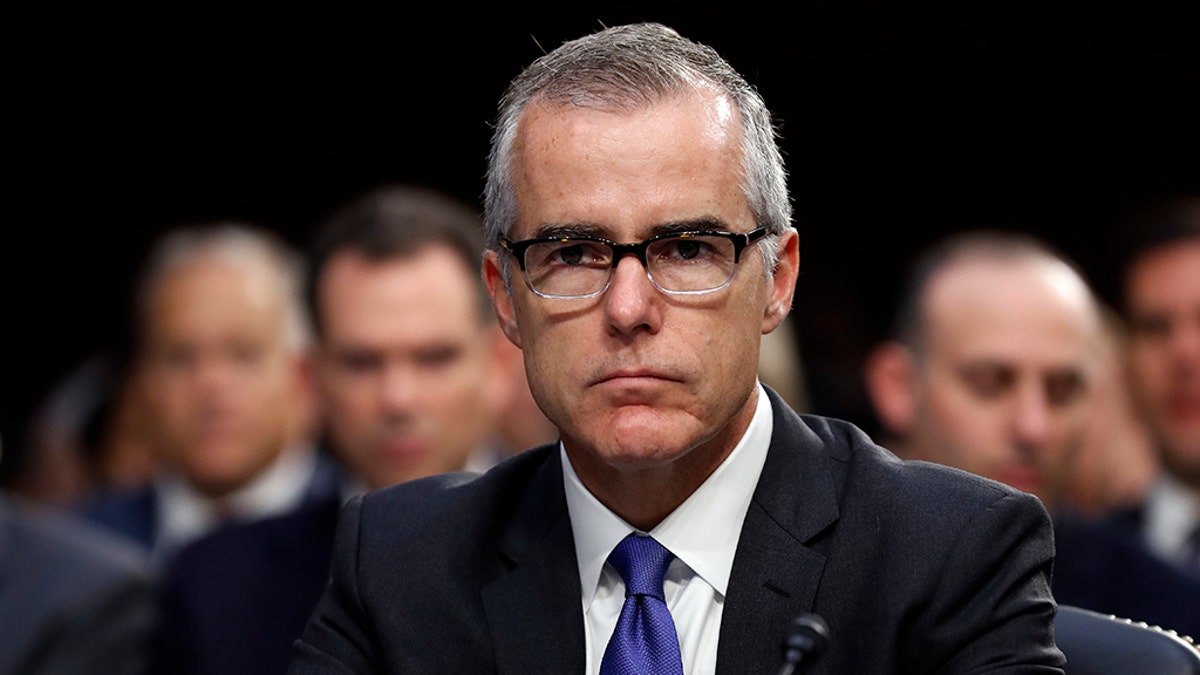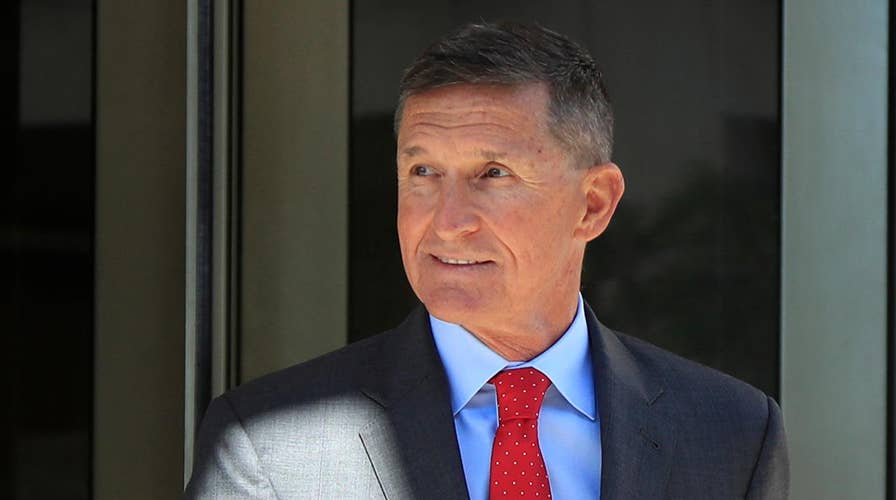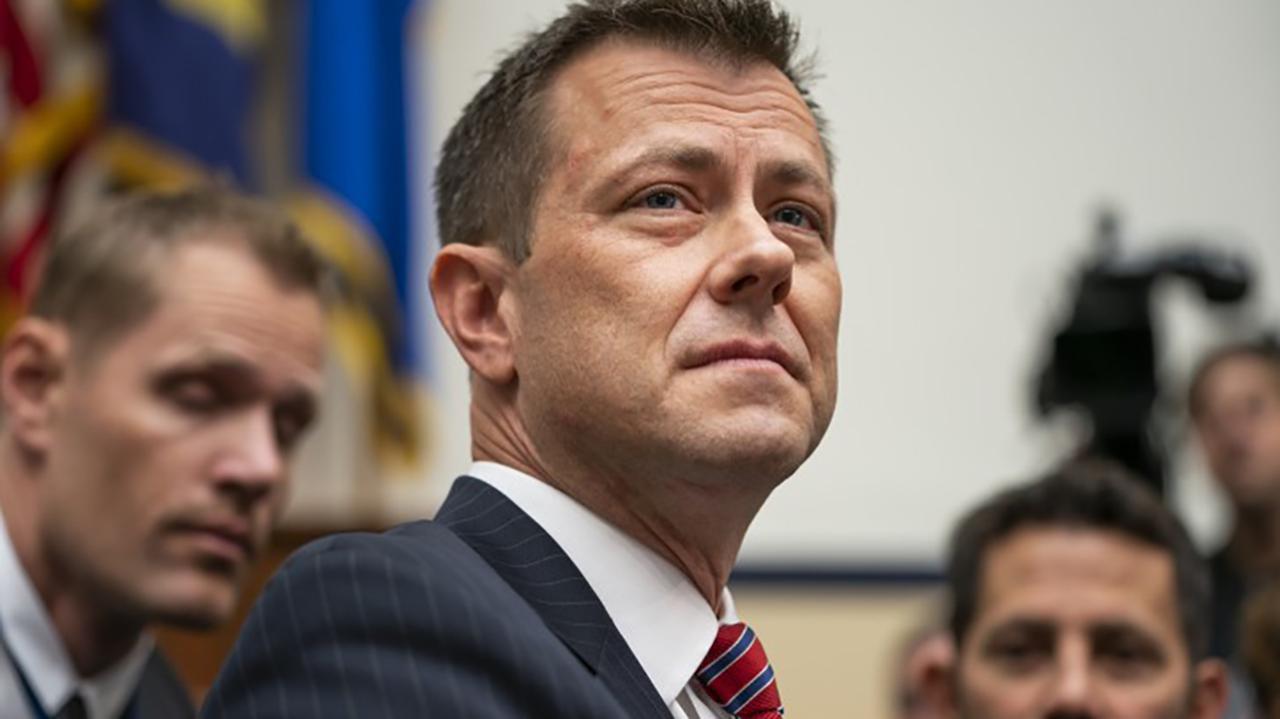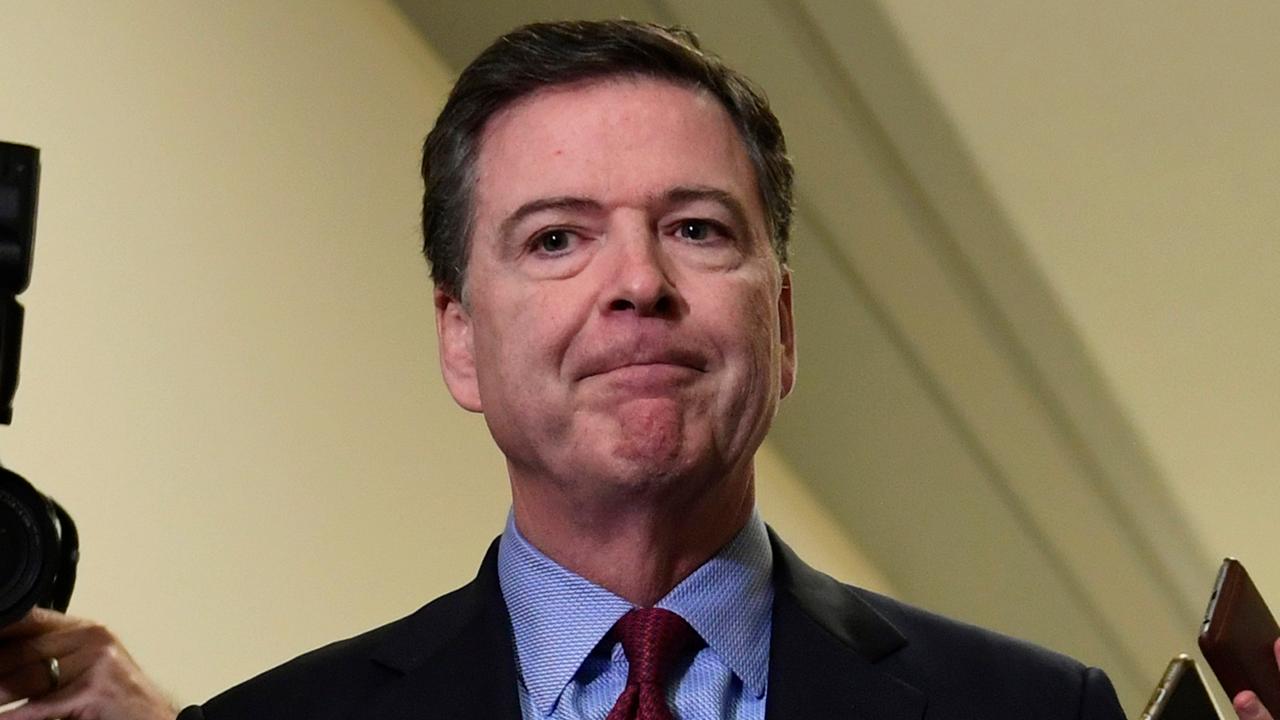Flynn lawyers ask for probation and community service
Michael Flynn's counsel requesting community service in lieu of jail time.
In a lengthy court filing Tuesday, attorneys for former National Security Adviser Michael Flynn alleged that then-FBI Deputy Director Andrew McCabe pushed Flynn not to have an attorney present during the questioning that ultimately led to his guilty plea on a single charge of lying to federal authorities.
The document outlines, with striking new details, the rapid sequence of events that led to Flynn's sudden fall from the Trump administration. The filing also seemingly demonstrates that the FBI took a significantly more aggressive tack in handling the Flynn interview than it did during other similar matters, including the agency's sit-downs with Hillary Clinton and ex-Trump adviser George Papadopoulos.
While Flynn is among several Trump associates to have been charged with making false statements as part of the Russia probe, no one interviewed during the FBI’s Clinton email investigation was hit with false statement charges – though investigators believed some witnesses were untruthful.
FALSE STATEMENT CHARGES ABOUND IN MUELLER PROBE, IN CONTRAST TO CLINTON CASE
According to Flynn's legal team, FBI agents in his case deliberately did not instruct Flynn that any false statements he made could constitute a crime, and decided not to "confront" him directly about anything he said that contradicted their knowledge of his wiretapped communications with former Russian ambassador Sergey Kislyak. (Federal authorities undertaking a national security probe are ordinarily under no obligation to inform interviewees of their right to an attorney unless they are in custody, as long as agents do not act coercively.)
If “Flynn said he did not remember something they knew he said, they would use the exact words Flynn used, . . . to try to refresh his recollection," FBI agents wrote in a so-called "302" witness interview report cited by the filing. "If Flynn still would not confirm what he said, . . . they would not confront him or talk him through it.”
McCabe -- who was fired earlier this year for making unauthorized media leaks and violating FBI policy -- wrote in a memorandum that shortly after noon on Jan. 24, 2017, he called Flynn on his secure line at the White House, and the two briefly discussed an unrelated FBI training session at the White House. Quickly, the conversation turned to a potential interview, according to an account provided by McCabe that was also cited in the Tuesday filing.
McCabe said that he told Flynn he “felt that we needed to have two of our agents sit down” to discuss his contacts with Russian officials.
“I explained that I thought the quickest way to get this done was to have a conversation between [Flynn] and the agents only," McCabe wrote. "I further stated that if LTG Flynn wished to include anyone else in the meeting, like the White House Counsel for instance, that I would need to involve the Department of Justice. [General Flynn] stated that this would not be necessary and agreed to meet with the agents without any additional participants."
Explaining why Flynn was not warned about the possible consequences of making false statements, one of the agents wrote in the 302 that FBI brass had "decided the agents would not warn Flynn that it was a crime to lie during an FBI interview because they wanted Flynn to be relaxed, and they were concerned that giving the warnings might adversely affect the rapport."
The tactics were apparently in sharp contrast to the FBI's approach to interviewing former Trump aide George Papadopoulos, who also pleaded guilty to making false statements and was recently released from prison. In a court filing last year, Special Counsel Mueller's team took pains to note that FBI agents who interviewed Papadopoulos on January 27, 2017 -- just days after the Flynn interview -- had advised Papadopoulos that "lying to them 'is a federal offense'" and that he could get "in trouble" if he did not tell the truth.
The revelations in the court filing, if accurate, would also sharply differ from the FBI's handling of its interview with then-presidential candidate Clinton in 2016, during the height of the presidential campaign. Clinton brought a total of nine lawyers to her interview -- a number that fired FBI Director James Comey said was "unusual ... but not unprecedented" in House testimony in September.

FILE - In this June 7, 2017 file photo, acting FBI Director Andrew McCabe appears before a Senate Intelligence Committee hearing about the Foreign Intelligence Surveillance Act on Capitol Hill in Washington. (AP Photo/Alex Brandon, File)
A scathing report released earlier this year by the Department of Justice's Inspector General (IG) found that the FBI had taken actions "inconsistent with typical investigative strategy" by allowing former Clinton chief of staff Cheryl Mills and ex-campaign staffer Heather Samuelson to sit in on the Clinton interview -- even though "they had also both served as lawyers for Clinton after they left the State Department."
In fact, the IG wrote, FBI officials fretted about how many FBI representatives should be at the interview, for fear of prejudicing Clinton against the agency if, as expected, she went on to become president.
“[S]he might be our next president," FBI attorney Lisa Page wrote, in urging that the number of people at the interview be limited to four or six. "The last thing you need us going in there loaded for bear. You think she’s going to remember or care that it was more doj than fbi?”
The IG report further noted: “Witnesses told us, and contemporaneous emails show, that the FBI and Department officials who attended Clinton’s interview found that her claim that she did not understand the significance of the ‘(C)’ marking strained credulity. (FBI) Agent 1 stated, ‘I filed that in the bucket of hard to impossible to believe.’"
FLYNN HAS PROVIDED 'SUBSTANTIAL ASSISTANCE' ON CRIMINAL PROBE, MUELLER WRITES
In his fateful interview at the White House with since-fired anti-Trump FBI agent Peter Strzok and another FBI agent, Flynn "clearly saw the FBI agents as allies," according to one FBI 302, which was dated Aug. 22, 2017 -- nearly seven months after the actual interview. (The August 302 was from the FBI's interview with Strzok about the January Flynn interview; a separate 302 exists for Flynn's conversations. The Flynn 302 was approved by FBI brass in mid-February, three weeks after the initial interview at the White House.)
FBI MAY HAVE MODIFIED 302 REPORTS AFTER-THE-FACT, GOP REP SAYS
According to the Strzok 302, Flynn was “relaxed and jocular” as he gave the agents a "little tour" of his West Wing office. (McCabe reportedly testified later that the agents, after speaking with Flynn, “didn’t think he was lying" at the time.)
In his report on FBI and DOJ misconduct during the Russia and Clinton probes, the IG additionally noted that Strzok, who was one of the two agents who interviewed Flynn and who was later also fired for violating FBI policies, had compromised the FBI's appearance of impartiality by sending a slew of anti-Trump texts on his government-issued phone.
“In particular, we were concerned about text messages exchanged by FBI Deputy Assistant Director Peter Strzok and Lisa Page, Special Counsel to the Deputy Director, that potentially indicated or created the appearance that investigative decisions were impacted by bias or improper considerations,” the IG report said.
In one of those texts, Strzok wrote to Page in 2016 that Trump would not become president because "we'll stop" it from happening.
"Even when circumstances later came to light that prompted extensive public debate about the investigation of General Flynn, including revelations that certain FBI officials involved in the January 24 interview of General Flynn were themselves being investigated for misconduct, General Flynn did not back away from accepting responsibility for his actions," Flynn's lawyers wrote in the filing Tuesday.
Flynn was fired as national security adviser in February 2017 for misleading Vice President Mike Pence and other White House officials about his contacts with Russian officials. In arguing that Flynn should receive no more than a year of probation and 200 hours of community service for making false statements to federal investigators, his lawyers Tuesday emphasized his service in the United States Army and lack of criminal record.
In a sentencing memo earlier this month, Special Counsel Robert Mueller recommended a lenient sentence -- with the possibility of no prison time -- for Flynn, stating he has offered "substantial" help to investigators about "several ongoing investigations."
Flynn is set to be sentenced Dec. 18.
Meanwhile, Comey revealed in closed-door testimony with House Republicans on Friday that he deliberately concealed an explosive memorandum about his one-on-one Oval Office meeting with President Trump in February 2017 from top Department of Justice officials.
The former FBI head also acknowledged that when the agency initiated its counterintelligence probe into possible collusion between Trump campaign officials and the Russian government in July 2016, investigators "didn't know whether we had anything" and that "in fact, when I was fired as director [in May 2017], I still didn't know whether there was anything to it."
His remarks square with testimony this summer from former FBI lawyer Lisa Page, whose anti-Trump texts became a focus of House GOP oversight efforts. Page told Congress in a closed-door deposition that "even as far as May 2017" -- more than nine months after the counterintelligence probe commenced -- "we still couldn't answer the question" as to whether Trump staff had improperly colluded with Russia.
Fox News' Samuel Chamberlain contributed to this report.
















































